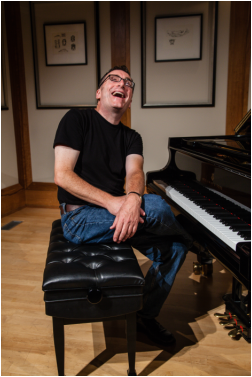|
What do lawyers, ice cream shops, chiropractors, car dealers, candy stores, financial services professionals, insurance brokers, real estate agents, satellite radio, software applications and a host of other assorted products and services have in common? They all offer free trials, samples, or consultations. A session of their time for free (or many sessions in the case of a real estate agent,) a sample of the product, a test drive, an opportunity to experience the therapy... Music teacher's thoughts on this vary widely. Typically, their reasons for not offering free trial lessons are that the student is "window shopping" or that a free lesson "devalues" their lesson experience. Consider: Window shopping: The student may very well be looking for the teacher who is the best fit and sampling multiple teachers. From our perspective as teachers, we have a strong personal connection to our work and want students who we think are a good fit. Devalue Lessons?: If the teacher communicates their fees clearly upfront, the lesson value becomes evident in the free trial lesson, not devalued. "But my time is too valuable!" That's exactly the point. If you're a music teacher, consider that a twenty or thirty minute free session with a prospective student serves multiple purposes, while obligating neither party:
So think about it--you're worth it. If you want more students and a fulfilling teaching experience by teaching students who you want to teach, consider offering free samples. This is especially true if the delivery medium is unfamiliar and you're working in the still uncharted territory of live online webcam lessons. I'll bet the lawyers and chiropractors and finance people wish they had a relationship with their clients that allowed them to navigate a world of beauty and craft with the depth of music. Ask the next one that you have as a student. Also, ask them about the efficacy of free. What are your thoughts and experiences with trial lessons? Please share! About the Author: Pianist, recording artist, educator and entrepreneur—Philip Amalong is VP of Community and Content for the ZOEN (Zenph Online Education Network).
0 Comments
Play /plā/ Verb: Engage in activity for enjoyment and recreation rather than a serious or practical purpose. Noun: Activity engaged in for enjoyment and recreation, esp. by children. I find it interesting to note that when we make music at our instrument, it’s considered “playing.” As musicians, we get to play. Every day. [Singers, I know you don't use the same term, but the idea makes sense for you too, no?] I was pondering this today as I wrestled to play chords on the guitar—an instrument I’ve never learned. I didn't feel very "playful." But something sparked—I felt like there was something I might like to do with this instrument. Should I find a teacher and take live online lessons? Why not learn another kind of play? I’m a professional classical pianist. I've had a very playful life so far, you could say. But it occurred to me that it might be fulfilling to find another way to play, a casual “fireside” portable kind of play. Maybe I’d even be able to share some of the other music I love with family and friends (one of my musical “soft spots” is for indie alternative folk pop…or something like that…I’m listening right now, for example, to the new A Fine Frenzy album that came out today.) By definition, play serves no “practical purpose.” But play pervades nature. And making music is a distinctly human activity. So, one could propose, playing music is highly purposeful because in doing so, we engage in being what we are: human. Musical instruments are contraptions created to make the sounds we imagine or hear in our heads. Until we master them, they’re unnatural, they hurt our hands (fingertips on the guitar today!), strain our breath, make us self conscious and frustrated, and produce consternating sounds other than what we really want to hear. Thus we practice. Practicing, come to think of it, is also very human—the effort put forth to hone and perfect our creation of sounds that reveal our human qualities. So, the next time you play your instrument, consider what a wonderful opportunity it is to embrace something created to help you express what and who you are. Play indeed has purpose. If we practice with passion and gratitude, our instrument will become an extension of us. The more actively we listen, the more deeply we feel, the more we tell a story with every succession of notes, the more music opens the window to our very self, revealing us to ourselves and others.
|
AuthorObserver of the world of music, performance, learning and technology. Performer, Producer, Recording Artist, VP Community and Content-Zenph Inc. Categories
All
Archives
January 2013
|
Philip Amalong | Pianist, Recording Artist, Educator, VP-The ZOEN

 RSS Feed
RSS Feed

